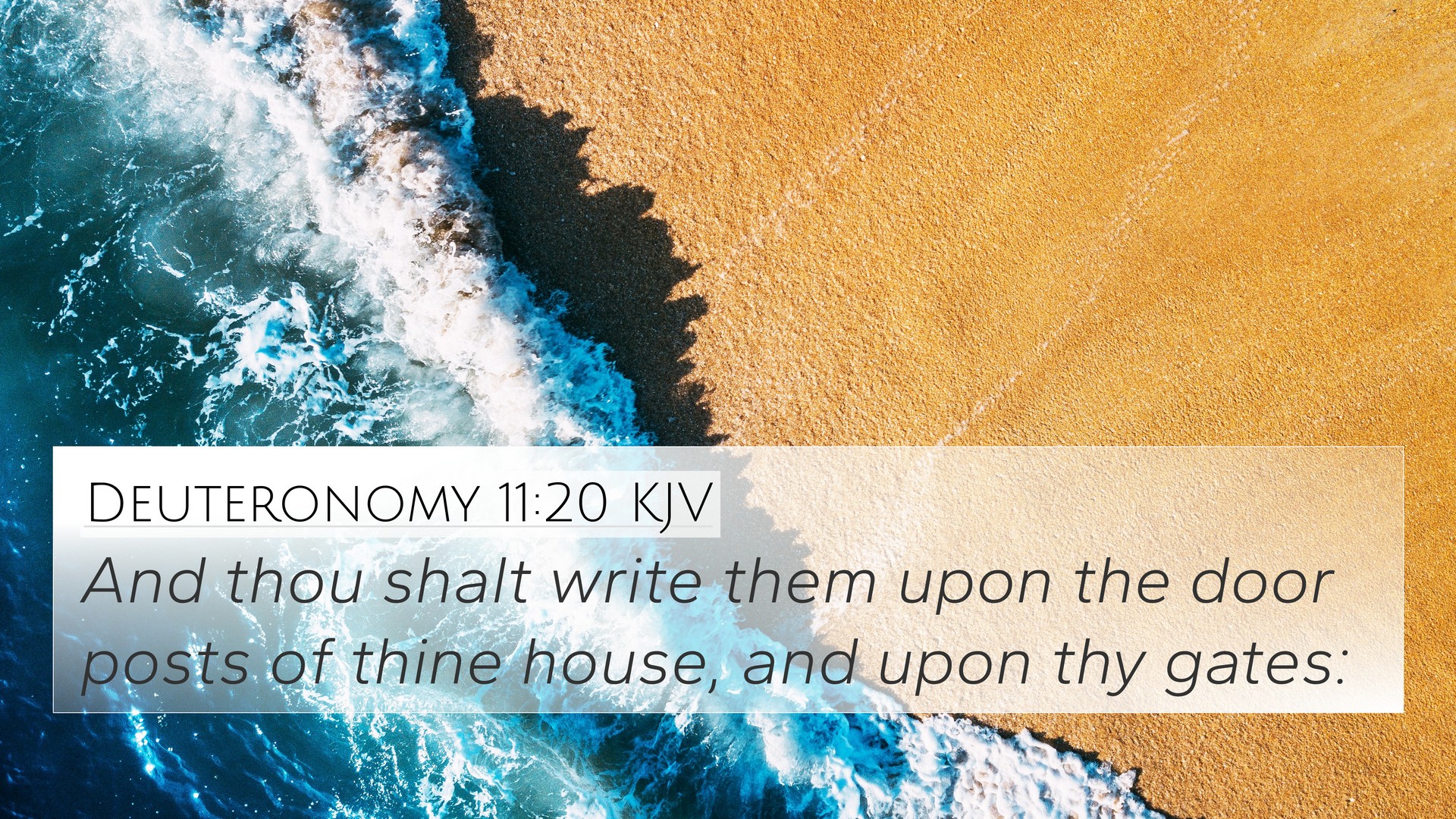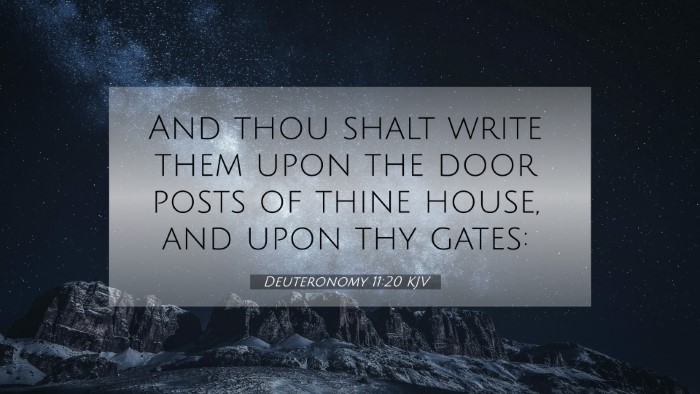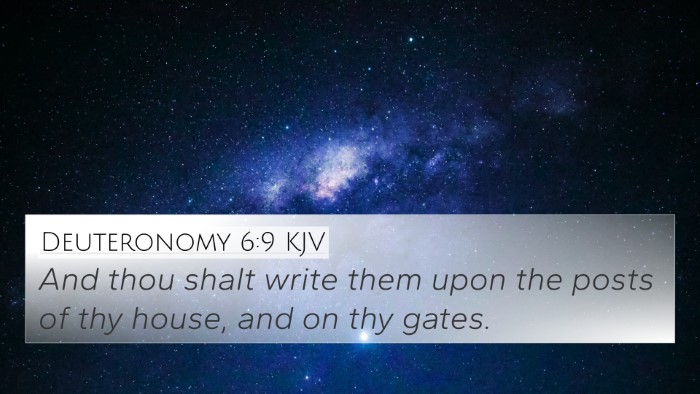Meaning and Insights of Deuteronomy 11:20
Verse Reference: Deuteronomy 11:20 - "And thou shalt write them upon the door posts of thine house, and upon thy gates."
This verse emphasizes the importance of keeping God's laws at the forefront of daily life. It calls for a tangible reminder of God's commandments as part of the home environment.
Contextual Overview
In the context of Deuteronomy, Moses is reiterating the covenant between God and His people. The chapter stresses obedience and love for the Lord, laying out the blessings of following God’s commands contrasted with the curses of disobedience.
Public Domain Commentary Insights
Matthew Henry’s Concise Commentary
Matthew Henry emphasizes the necessity of teaching God's law diligently to children and embedding it within the daily routine of family life. Writing the laws on doorposts symbolizes a public acknowledgment of one’s faith and commitment to God.
Albert Barnes’ Notes on the Bible
Barnes explains that the doorposts and gates represent entry points into the home and community, suggesting that God’s laws should guide both private and public life. This was also a means to protect one’s household from external influences that could lead them astray.
Adam Clarke's Commentary
Clarke elaborates on the significance of having God’s laws visible, indicating that it serves as a continual reminder of the covenant. This act of writing is symbolic of making God’s commandments a foundational part of life.
Bible Verse Cross-References
- Exodus 13:9 - "And it shall be for a sign unto thee upon thy hand, and for a memorial between thine eyes, that the Lord’s law may be in thy mouth." This verse aligns with the theme of keeping God’s commandments constantly before us.
- Proverbs 6:6-9 - "Bind them upon thy fingers, write them upon the table of thine heart." These verses highlight the importance of internalizing God’s laws.
- Joshua 1:8 - "This book of the law shall not depart out of thy mouth; but thou shalt meditate therein day and night." Meditating on God's word relates to the reminders in Deuteronomy 11:20.
- Psalm 119:11 - "Thy word have I hid in mine heart, that I might not sin against thee." This reflects the intention of making God's law central in one’s life.
- Hebrews 8:10 - "For this is the covenant that I will make with the house of Israel after those days, saith the Lord; I will put my laws into their mind, and write them in their hearts." This illustrates the continuity of God’s desire for His laws to dwell within us.
- Matthew 22:37-39 - Jesus refers to the greatest commandment, which emphasizes love for God as foundational and aligns with the ideas presented in Deuteronomy.
- James 1:22 - "But be ye doers of the word, and not hearers only." This verse connects the idea of actively incorporating God’s teachings into one’s daily actions.
Thematic Bible Verse Connections
Deuteronomy 11:20 serves as a cornerstone for understanding the interaction between faith and daily life. It exemplifies the theme of commitment to God’s commandments and their application within both personal and public spheres.
Cross-Referencing Biblical Texts
The act of writing God's laws upon doorposts reflects a broader biblical principle of establishing constant reminders of divine teachings. Such practices ensure that believers not only understand their faith but actively live according to it. This biblical approach can be linked to various texts and concepts throughout Scripture.
Conclusion
In conclusion, Deuteronomy 11:20 richly illustrates the integration of God's commandments into the fabric of home and community life. Through the writings of esteemed commentators and the cross-references provided, the significance of this verse becomes clearer, illustrating a holistic approach to faith that is both personal and communal.



